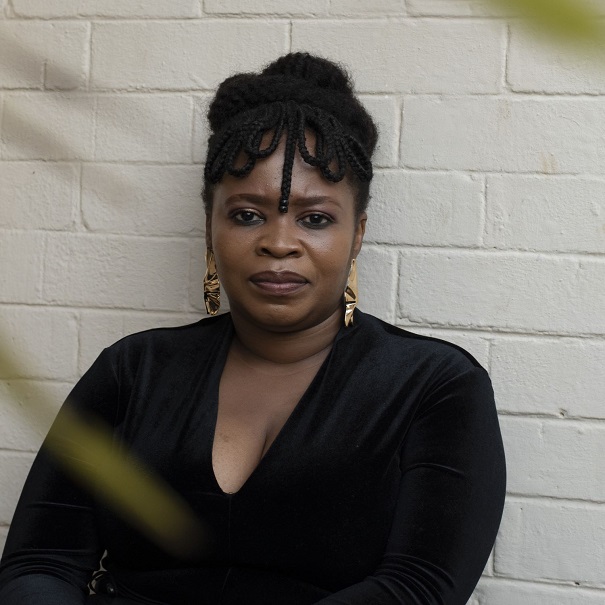Broadcasting
How Have Podcasts Contributed to the Rise of Afrobeats?

By Ncebakazi Manzi Podcast Manager: Spotify Sub-Saharan Africa
The rise of Afrobeats over the past decade or so has been nothing short of remarkable. From the streets of Nigeria and Ghana, it has become a global phenomenon, with some of the world’s biggest artists collaborating with Afrobeats icons and emerging artists alike.

In a sign of how rapid the ascent of Afrobeats has been, Spotify recently held events in Nigeria celebrating 13 billion streams of the genre. The growth of Afrobeats is unlikely to slow down anytime soon either, especially as streaming continues to grow across Africa.
According to research firm Statista, the continent’s streaming market is set to grow from US$362.5 million this year to US$513.2 million in 2027. Combine that expansion with significant diaspora populations and you have the ingredients for further inter-continental pollination and growth.
But there are other forces advancing the growth of Spotify. Podcasts in particular are playing an increasingly important role. That’s true not just on the African continent, but around the world too.
Africa’s podcast growth
Before looking at how podcasts and music streaming services have complemented each other to drive Afrobeats’ growth, it’s worth providing some additional context around the evolution of podcasts in Africa.
Thanks to rising smartphone adoption and increasingly affordable connectivity, the medium has seen significant growth across the continent. In fact, podcast listenership in Nigeria grew by an astonishing 222% between 2021 and 2022.
Unsurprisingly, it’s not just listenership that’s grown but production too. While it’s difficult to get an exact idea of how many African-produced podcasts there actually are, you only need to open your podcasting app and type a few continent and country-specific search terms in to see how much choice there is today. These podcasts cover a growing number of niches too, including Afrobeats.
At the recent Afrobeats celebration events that were held in Lagos, Nigeria, the first day featured Spotify for Podcasters sessions which were focused on empowering creators and showcasing top podcasts. These events included a workshop on the basics of podcasting followed by a panel discussion with Nigerian podcasters. Next were live podcast recordings of a Spotify for Artists Masterclass on “Afrobeats Intelligence” and “I Said what I Said” featuring Afrobeats artists, Pheelz and Nissi. The day ended with a surprise performance by Pheelz bringing Afrobeats lovers and the expanding community of podcasters together.
Spreading the word about Afrobeats
There are a number of high quality podcasts with an Afrobeats focus that not only highlight tracks from the genre but also delve into meaningful discussions related to the music.
Take Afrobeats Intelligence, for example. Founded by award-winning Nigerian music journalist Joey Akan, the podcast is a spin-off of his newsletter of the same name. And while it may be rooted in Nigeria, the podcast celebrates creative excellence from across the African continent.
Terms and Conditions by Pulse, meanwhile, dissects worthy culture-related conversations with insights and varying perspectives. Hosted by Neo Akpofure, ex BBNaija housemate, Oyindasola Chekwa ESQ, a lifestyle influencer and content creator and Sayo AK an artist, planner, and entrepreneur. The podcast was launched in 2021 and also provides invaluable insights into the music industry from people who’ve been in the thick of it.
An older offering comes in the shape of Loose Talk, hosted by the trio of veteran media and music journalists Osagie Alonge, Steve Dede, and Ayomide Tayo. Founded in 2016, when the African podcasting scene was still in its infancy, the show discusses all things music and culture. After a three year hiatus, Loose Talk started putting out new episodes this year.
Complementary mediums
That these and other shows have built sustainable offerings not only demonstrates the hunger to learn more about Afrobeats as a genre but also their potential to grow the genre’s popularity both in Africa and around the world. That shouldn’t be too surprising either. Being audio-driven mediums primarily, podcasts and music can be incredibly complementary mediums.
This ability to act as a promotional vehicle is underlined by our own Spotify data. It shows that the country with the highest number of Afrobeats podcast listeners is the UK, beating out Nigeria, with the US in third spot.
For listeners, it’s easy to imagine how this symbiosis between streaming and podcasts comes about. They might have a friend recommend an Afrobeats artist or have their curiosity sparked by a song featured on the soundtrack for a movie or series. Once they’ve listened to those songs, they’ll likely want to find out more about the artist or to discover other, similar artists.
Podcasts offer them a convenient way of doing that (especially if they can access said podcasts from the same app), while also providing insights into the genre and news on the latest artist releases, collaborations, and developments.
Afrobeats and beyond
While Afrobeats has undoubtedly been one of the biggest beneficiaries of Africa’s podcasting explosion, there is no doubt that other genres are benefitting and will benefit in the future too. As more and more African producers launch their own podcasts and smartphone penetration and connectivity continue to grow across the continent, that symbiotic influence will only keep growing.
Broadcasting
Anambra State Government Launches SolutionLens to Drive Transparency and Citizen Engagement

Anambra State Government has launched SolutionLens, a technology-driven platform aimed at enhancing transparency, accountability, and citizen engagement in governance.

The platform, developed through a collaborative effort by the Ministry of Budget and Economic Planning, the Ministry of Information, and the Anambra State ICT Agency, was unveiled on Thursday, May 15, 2025, at the Solution Innovation District (SID) Building in Awka.
Speaking at the launch, Mrs. Chiamaka Nnake, Honourable Commissioner for Budget and Economic Planning, described SolutionLens as a democratic tool that simplifies the Open Government Partnership (OGP) process.
She emphasized its role in planning, budgeting, and fostering investor confidence through community-based feedback mechanisms.
In her remarks, Mrs. Ogochukwu Orji, the State Coordinator of OGP, noted that SolutionLens is designed to shine a light on public projects, empowering citizens to ask questions, hold the government accountable, and ensure resources are used for the common good.
Key Features of SolutionLens
Centralized digital hub for government projects
Interactive maps with a user-friendly interface
Live chat feature to connect citizens directly with MDAs
A live demonstration of the platform was conducted, followed by the formal inauguration of MDA focal persons, who will ensure the platform remains updated and responsive.
Participants commended Governor Charles Chukwuma Soludo, CFR, for this forward-thinking initiative, describing SolutionLens as a game-changer in governance.
The government urged citizens to actively engage with the platform and spread awareness, emphasizing that this initiative will safeguard the integrity and prosperity of Anambra State for generations to come.
Broadcasting
Governor Hyacinth Alia Named Among Nigeria’s Top 50 Digital Economy MVPs for 2025

Benue State Governor, Rev. Fr. Dr. Hyacinth Iormem Alia, has been named among the “50 Most Valuable Personalities (50MVPs) in Nigeria’s Digital Economy 2025,” a prestigious recognition celebrating visionary leadership in technology-driven governance.

Governor Alia’s administration has prioritized digital inclusion and ICT development, introducing groundbreaking initiatives that position Benue State at the forefront of Nigeria’s digital economy. Under his leadership, the government has established three key institutions: the Ministry of Communications, Innovation & Digital Economy, the Benue State Digital Infrastructure Company (BDIC), and the Benue State Digital Infrastructure Services Management and Enforcement Agency (BENDISMEA).
Since assuming office, Alia has launched several digital initiatives, including training over 40,000 civil servants in e-governance tools and equipping 10,000 youths with digital skills. Additionally, the government has set up 276 e-commerce hubs across council wards to support local businesses and young entrepreneurs.
The BDIC, a core driver of Benue’s tech transformation, has spearheaded projects in digital financial inclusion, AI education, and broadband expansion. The state has also partnered with the Digital Bridge Institute (DBI) to establish digital training hubs in all local government areas, targeting 23,000 trainees annually.
Alia’s recognition as one of Nigeria’s top digital leaders will be formalized at the West Africa Convergence Conference (WACC) 2025, scheduled for May 22 at The Colosseum, Lagos. The annual event, organized by Knowhow Media, brings together policymakers and innovators shaping Nigeria’s digital future.
Speaking on the selection process, Dr. Sola Afolabi, Chairman of the 2025 Nomination Committee, praised Alia’s contribution, describing his digital initiatives as “transformational steps that set the benchmark for technology-driven governance.”
Previous editions of the 50MVPs in Nigeria’s Digital Economy have honored notable figures such as Minister of Humanitarian Affairs, Prof. Nentawe Goshwe Yilwatda, and NDPC CEO, Dr. Vincent Olatunji.
Governor Alia’s reforms reflect a broader shift towards digital governance in Nigeria, highlighting the potential of technology to drive inclusive economic growth and efficient public administration.
Broadcasting
5 Things You Absolutely Need to Know About BBNaija Season 10



 E-Financial2 days ago
E-Financial2 days agoAccess Holdings Sets Benchmark in Fraud Prevention With ₦193.5Bn Tech Investment

 E-Financial2 days ago
E-Financial2 days agoMTN’s Digital Lending Arm Disburses $592m Loans in Q1

 E-Financial2 days ago
E-Financial2 days agoAccess Bank, Deloitte Partner to Equip SMEs with Tools for Growth

 News2 days ago
News2 days agoSERAP Asks Ojulari, NNPC CEO to Account for Missing N500Bn or Face Legal Action

 E-Financial2 days ago
E-Financial2 days agoFG Verifies 2m Households for Cash Transfer

 E-Business2 days ago
E-Business2 days agoFG Launches Online Citizenship, Business Management Platform

 Telecom2 days ago
Telecom2 days agoEquinix Expands Digital Footprint in Nigeria with Launch of LG2.3 Data Center

 General News2 days ago
General News2 days agoNOTAP Urges South Eastern Entrepreneurs to Embrace Franchising as Business Model




























